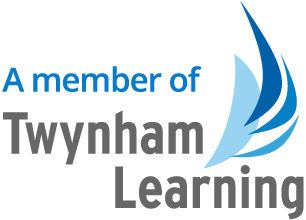- Elections are held for the appointment of School Council reps (anyone is able to stand).
- All Year 6 pupils are able to apply for the positions of librarian, sports leader, peer mediator and other positions of responsibility across the school.
- Class rules are devised and agreed as a class.
- All year groups follow rotas for football and use of play equipment.
- Children are encouraged to make decisions together eg voting for the attendance race figure head, voting for class rewards, voting for how PTFA money might be spent eg Pick Up Sticks.
- Children know that their opinions are important: School Council reps are given opportunities to feedback before and after meetings.
- Children are given opportunities to vote between choices of activity eg Enterprise Fair in Y5.
- Annual Science Fair provides opportunities for following children’s own interests.
- Year 6 curriculum covers democracy in Ancient Greece.
- Children are encouraged to see their role in the bigger picture eg earning housepoints for their team, helping their class in the attendance race, planning and organising class Bring and Buy sales for charity.
- RE curriculum promotes different faiths and cultures eg What is Faith in Y3, Islam and Hinduism in Y4, Judaism in Y5, Chinese New Year across the school.
- The PSHRE curriculum (and regular use of Newsround and First News) encourages children to recognise similarities and differences between themselves and others eg dyslexia, autism, learning difficulties and to be aware of what is happening in the world around them.
- The teaching of MfL (French and Spanish) encourages children to learn about other cultures, traditions and ways of life eg Christmas traditions in Spain, La Tomatina in Y4.
- Y5 history curriculum (Britain since WW2) encourages children to recognise the changes in the UK post-war.
- Y4 geography curriculum encourages children to research and present the cultures and traditions of a different European country. A European food tasting afternoon encourages children to learn about the world around them.
- Y3 Christmas Around the World production promotes different views and races.
- Children with medical needs and conditions are encouraged to share their experiences and ways of life (eg visit from diabetic nurse, presentation to class by child regarding her medical condition).
- National events such as Remembrance Day (2 minutes Silence and the Last Post) and Children in Need (Bring and Buy Sale) are celebrated and recognised.
- Competitive sport (both inter and intra school) encourages mutual respect.
- Links with local charities (including the food bank, Macmillan Caring Locally, the Piam Brown Unit at SGH),national charities (including Children in Need, The Shoebox Appeal, Child of Hope) and local places such as residential care homes (the choir visits Bure House) provide opportunities for children to make links with the wider community.
- The school responds to national and international emergencies as and when they happen by holding Bring and Buy sales to raise money eg the Haiti disaster.
- ’Show and Tell’ sessions in class encourage children to share experiences and allow children to recognise differences and similarities between themselves and others.
- There are clear and consistent expectations across the school for good manners and respectful behaviour. These are upheld and reinforced by all staff.
- The schools pond area is dedicated to the memory of our previous chair of governors and links with Macmillan Caring Locally are continued annually with coffee
- Each class devises and agrees classroom rules in September helping children to understand the need for rules to keep everyone safe and happy.
- The CJS charter is displayed and referred to in each classroom.
- Appropriate behaviour is modelled by all adults in school. Behaviour Hot Spots (with a weekly focus) remind children at key points around the school.
- Uniform standards are adhered to and upheld by all.
- Regular PSHE/circle time ensures that adults and children work together to create and adhere to group rules.
- Use of the nurture playground, SULP groups, social stories, circle of friends, behaviour and friendship contracts teaches children to understand their own and others’ behaviour and feelings, and the consequences.
- Character studies in Literacy work encourage empathy and the use of emotive language and responses.
- Clear and consistent rewards and sanctions across the school (and within year groups) promote fairness and help children to distinguish right from wrong.
- Regular E safety assemblies (delivered by the police) and reference to being SMART helps to keep children safe online.
- Bikeability sessions (up to Level 3) are prioritised to older children.
- The school promotes and upholds a nut free policy to keep all adults and children safe.
- Team sports (and interschool competitions) provide children with opportunities to develop their self esteem and confidence in their own abilities.
- Weekly ‘Good Assembly’ and weekly Achievement Awards encourage children to develop a positive sense of themselves.
- Spelling badges and times table challenges encourage children to set their own goals and promotes independence.
- ’Show and Tell’ sessions encourage children to share their personal achievements and successes.
- PE curriculum provides opportunities for children to engage in a range of different activities.
- Girls playing on the Y5/6 school football team challenges gender-specific activities.
- Drama workshops (Egyptians in Y3 and WW2 in Y5) provide opportunities for all children to be actively engaged in a range of different activities.
- Music workshops (recorders in Y3 and ukulele in Y4) provide opportunities for all children to try a range of different musical activities and to discuss and select their own preferences.
- Peer marking provides opportunities for children to develop confidence in their own abilities.
- Children are encouraged to try a range of different musical activities and to discuss and select their own preferences (peripatetic music lessons, Y5 class band, Samba Club, choir, orchestra and Jumbie Jams).
- Residential trips in Year 5 or Year 6 provide opportunities for children to develop their self esteem and confidence and promote independence.
- The school’s 7 Step approach to resolving bullying issues is based on principles of restorative justice and emphasises individual rights and responsibilities.


